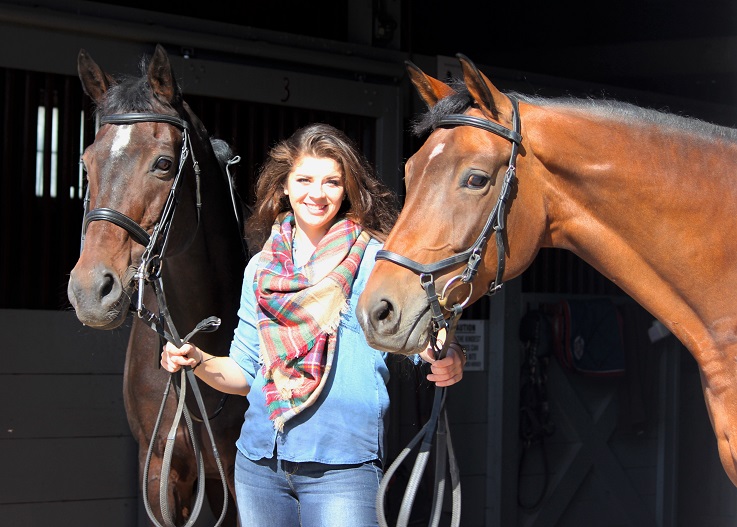Communications Management in Equine Health
(Photo courtesy of Leah Strid)
Horses travel farther distances with greater frequency now more than ever, and with this travel comes concern for health and safety. Infectious and contagious diseases are among the greatest threats to horse health. A poorly handled outbreak could be catastrophic to the equestrian industry, which means that communication and prevention is key.
That’s the goal of William Woods University alumna Bailey McCallum, Communications Manager at the Equine Disease Communication Center (EDCC) in Lexington, Kentucky.
“A lot has changed in the horse world over the last few decades, including how often and how far horses travel — which makes infectious disease a huge concern,” said McCallum.
The EDCC is an industry-supported and industry-funded endeavor to mitigate and prevent the spread of disease in the U.S. horse population. It also strives to limit the detrimental effects of disease and resulting quarantines on the equine industry.
McCallum’s role is to corroborate reports about infectious disease outbreaks with veterinarians and state animal health officials, and to report alerts and updates through a notification system which includes an outbreak alert page on the EDCC website, an email alert system, and social media (Facebook and Twitter).
“I review and post information on infectious diseases, biosecurity, and disease and industry news on the website, maintain the social media accounts and coordinate with the committees who provide up-to-date research for the website,” said McCallum.
The EDCC began as a first step in the National Equine Health Plan by the American Horse Council, United States Equestrian Federation and the American Association of Equine Practitioners, where McCallum’s office is located.
According to the plan, since the beginning of 2013 there have been outbreaks of the neurologic form of Equine Herpesvirus-1, called Equine Herpesvirus Myeloencephalopathy (EHM), across the country. These and other disease outbreaks cost the industry millions of dollars for the care of horses, implementation of biosecurity, and lost revenue in the form of cancelled or restricted commercial equine activities.
“The EDCC is extremely well received by the industry. Everyone has been exceptionally supportive of the endeavor and just confirms over and over again how important this information really is to the industry,” McCallum said.
McCallum notes how important access to this information is for not just equine veterinarians, but also trainers, riders, owners and any person in any facet of the horse world.
“I love working for the industry in a way that contributes to horse welfare and for people who look at the bigger picture when it comes to horse health,” she said.
McCallum graduated in 2012 from William Woods University with a Bachelor of Science in Equestrian Science, and a concentration in Dressage. She returned in 2014 to earn a Master’s in Equestrian Education and worked as a graduate assistant in the equestrian studies department.


